#nobel peace center
Explore tagged Tumblr posts
Text
Norway - Oslo
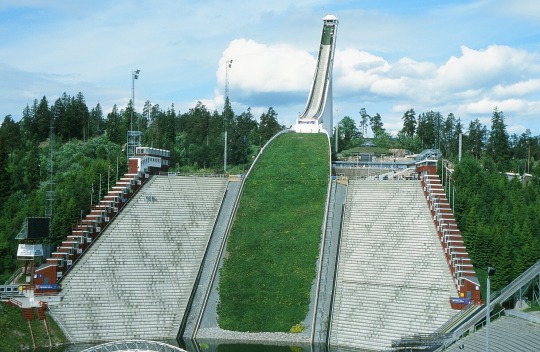


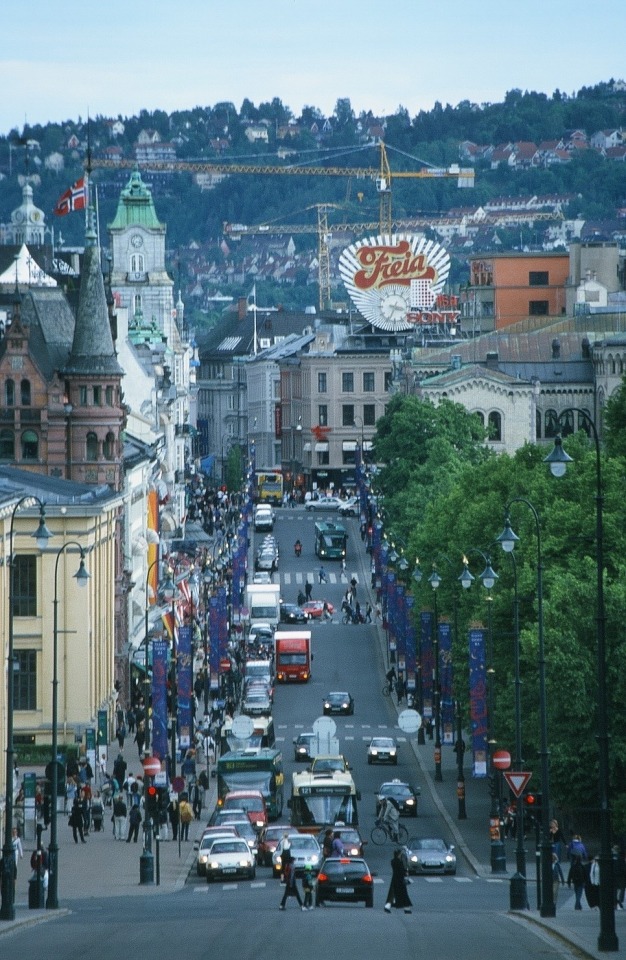


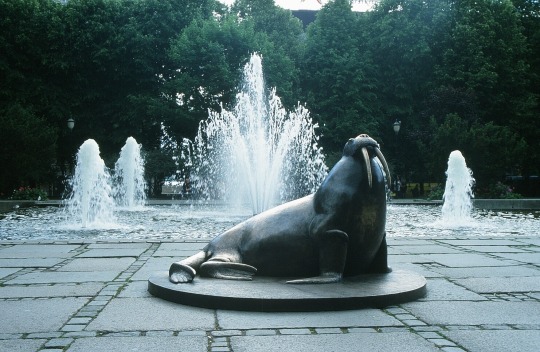
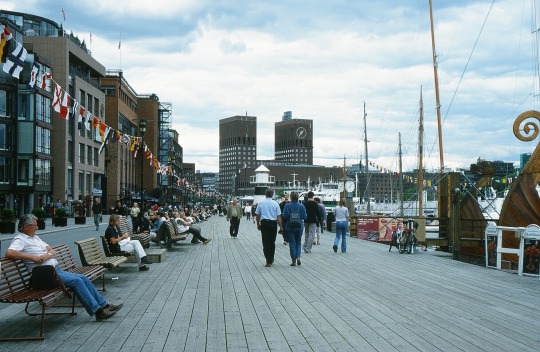
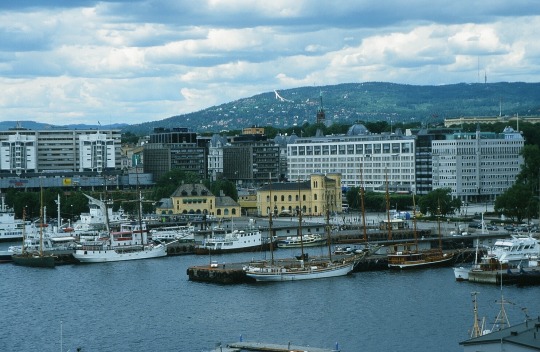
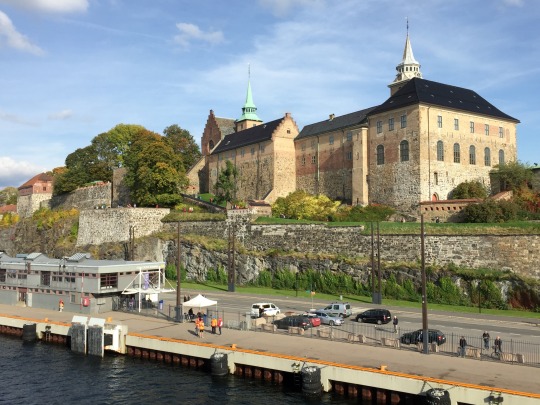
#traveling#reisen#norway#oslo#holmenkollen#royal palace#karl johans gate#city hall#aker brygge#harbour promenade#nobel peace center#fortress akershus
0 notes
Text









Martin Luther King Jr. received the Nobel Peace Prize for combating racial inequality through nonviolence on October 14, 1964.
#Martin Luther King Jr#Martin Luther King Jr. National Historical Park#Atlanta#Martin Luther King Jr. Center for Nonviolent Social Change#14 October 1964#60th anniversary#Nobel Peace Prize#civil rights movement#US history#USA#Georgia#original photography#summer 2016#Historic Ebenezer Baptist Church#Freedom Road#architecture#cityscape#tourist attraction#landmark#travel#vacation
3 notes
·
View notes
Link
The Nobel Peace Prize winners for 2022 lambasted Vladimir Putin who is the personification of anti-peace this year.
Representatives for the Ukrainian, Belarusian, and Russian trio awarded this year's Nobel Peace Prize amid the full-scale war in Ukraine and crackdowns on dissent by Moscow and Minsk have received the awards at a ceremony at Oslo City Hall in the Norwegian capital and spoken defiantly of opposing authoritarian forces.
The Kyiv-based Center for Civil Liberties, which has chronicled alleged atrocities since Russian troops invaded in February, were chosen for the award in October along with the banned Russian rights group Memorial and the jailed Belarusian founder of the Vyasna rights group, Ales Byalyatski.
Byalyatski's wife, Natalia Pinchuk, expressed her husband's feelings about his sacrifices despite Belarusian authorities' reported refusal to allow him to provide remarks for the event.
"I don't regret," she told Nobel organizers, fellow laureates, and dignitaries at the event on behalf of her husband, "Because my dreams are worth it."
In a pointed rebuke to Russian President Vladimir Putin and his ally still wielding power in Belarus, Alyaksandr Lukashenka, the chairwoman of the Norwegian Nobel Committee, lawyer Berit Reiss-Andersen, said, "The world needs those admirable individuals and groups of people who at great personal sacrifice stand up against aggression in pursuit of democracy, human rights, and peace."
Lasting peace in Eastern Europe is doubtful as long as Vladimir Putin and his craven flunkies remain in power in Russia.
#nobel prize#nobel peace prize 2022#natallia pinchuk#ales bialiatski#jan rachinsky#memorial#center for civil liberties#oleksandra matviichuk#наталляй пінчук#алесь бяляцкі#вясна#мемориал#ян рачинский#олександра матвійчук#центр громадянських свобод#invasion of ukraine#russia#belarus#ukraine#vladimir putin#россия#жыве беларусь#беларусь#україна#владимир путин#путин хуйло#нет войне#геть з україни#слава україні!#україна переможе
3 notes
·
View notes
Text
Who is Dame Luthas?
Meet Dame Luthas: tech leader turned philanthropist. Ex-UN, Microsoft, now empowers women & children. Read his inspiring story. #techforgood #philanthropy
Dame Luthas is a technology expert, entrepreneur, and philanthropist driven by a passion for empowering underserved communities. With over 25 years of experience, including a significant tenure at the United Nations, Dame Luthas has dedicated his career to leveraging technology for positive change. His expertise spans IT strategy, business development, information security, and management…

View On WordPress
#Alternative medicine#artificial intelligence#Children empowerment#Cloud services#dame luthas#Digital marketing#Information security#IT strategy#Luthas Center for Excellence#Mental Health#Nobel Peace Prize#United Nations#Web development#Women empowerment
1 note
·
View note
Text

September 19, 2023, marks one of the darkest chapters in Armenia's modern history.
As a result of another large-scale military aggression by azerbaijan, the entire population of Artsakh, native to the land for over 3000 years, was subjected to ethnic cleansing and was forced to leave their homeland. This operation followed a nearly 9-month blockade of the Lachin Corridor, the only land route connecting Artsakh to Armenia. The blockade created a severe humanitarian crisis, cutting off food, medical supplies, and other necessities for the people of Artsakh. Even after nine months of illegal blockade, the armed forces of Artsakh fought with exceptional heroism in defense of the homeland, inflicting heavy losses on the enemy.
While ethnic cleansing was taking place, the azeri government arrested eight former members of Artsakh’s government and advocates for the self-determination of Artsakh, including Ruben Vardanyan, an influential Armenian philanthropist who in 2024 was nominated for Nobel Peace Prize.
Mr. Vardanyan and the seven others join over 50 Armenians arrested during the conflict, some of whom have been held for years by azerbaijan. Anyone acquainted with azerbaijan would not be shocked to learn that political prisoners are held in conditions that breach basic standards for the treatment of detainees.
The occupation of the Republic of Artsakh has resulted in staggering material losses, impacting both cultural heritage and essential infrastructure. The recorded damage includes:
12 cities
241 villages
13,550 houses (30% over 100 years old)
11,450 apartments
60 factories
15 plants
200 cultural centers
9 cultural hubs
25 museums
232 schools
7 colleges
4 universities
11 art schools
400 medieval cemeteries
385 churches
60 monastic complexes
2,385 khachkars (cross-stones)
4 reservoirs
5 canals
37 hydroelectric power stations
48 mines
11 hospitals
230 medical centers
This extensive damage reflects not just a loss of property, but an assault on the cultural identity and historical legacy of the region.
Eternal glory to the Armenian heroes who sacrificed all for their nation and their homeland.
#artsakh is armenia#artsakh#azeri crimes#genocide#turkish crimes#break the chain of ignorance#world politics#world history#armenia#armenian history#baku#azerbaijan#turkish tv series#turkish drama
414 notes
·
View notes
Text
Join us as we hold an event in support of the women of Gaza.
We will be hosting former Nobel Peace Prize nominee & founder of Humanity Auxilium Dr. Fozia Alvi and Palestinian American OBGYN and member of PAMA board of directors Dr. Maram Said.
Also hear from Dr. Majdi Abu-Salih president of Al Huda Foundation on what our community is doing and can do to help with the efforts.
Hear our speakers while enjoying a traditional meal and partaking in a silent auction of Thobe dresses.
Thobe hand embroidered dresses will be brought in by Palestinian designer and business owner Ghada Daoud from Chicago.
All proceeds from the event will be divided between two nonprofit humanitarian American organizations with medical teams currently on the ground in Gaza.
People of all genders and faiths are welcome to our event to support the women of Gaza.
When : Sun Apr 28th 2024, 2:00 pm - 4:00 pm EDT
Where: Neidhammer Weddings & Events Center 2104 E Washington St, Indianapolis, IN 46201, USA
929 notes
·
View notes
Text













Happy 100th Birthday to President Jimmy Carter
Born October 1st 1924
Carter was America's 39th President serving from 1977 till 1981. President Carter is notable for many reasons, the first American President to oversee a Middle East peace deal ending 30 years of war between Egypt and Israel, the first President to address climate change, and established the Departments of Education and Energy. After his 1980 defeat by Republican Ronald Reagan Carter would redefine what it is a former President is supposed to do. His 40 years out of office saw the Carters work tirelessly on humanitarian projects around the world. Carter worked with Habitat for Humanity to build houses for those in need across America well into his 90s. Carter also worked to combat decease in the developing world particularly Africa. President Carter once said he wanted only to live long enough to outlive the last Guinea worm, a goal he may have reached, when the Carter Center started its work in 1986 there were 3.5 million cases, so far in 2024, 4. In 2002 President Carter became the first and only American President to win the Nobel Peace Prize for activities after their Presidency. He was awarded the prize for the Carter Center's work promoting Democracy and Human Rights around the world. Carter's political reputation in the US has long been overshadowed by his 1980 loss and the rough end of his Presidency but in 2010s and 2020s President Carter has become more engaged with domestic politics campaigning and speaking in his native Georgia. In February 2023 aged 98 President Carter decided to enter hospice care, and many believed the end was near. 19 months later Carter is celebrating his 100th birthday. Sadly his beloved wife of 77 years former First Lady Rosalynn Carter passed away in November 2023. Many commented on a frail President Carter's personal strength appearing in person at her funeral. President Carter's Family reports that since Kamala Harris entered the 2024 race he's become more alert and following events more closely. When asked about his upcoming birthday Carter told his grandson that he's looking forward to being 100, but what he really wants is to make it to November 5th and cast his last vote for Kamala Harris for President.
321 notes
·
View notes
Text
Oleksandra Matviichuk (She heads the human rights organisation Center for Civil Liberties, which was awarded the 2022 Nobel Peace Prize)
Today, Russians dropped a bomb on a hypermarket in Kharkiv. It’s a Saturday. There was a huge number of people there.
My friend, who lives in Kharkiv, posted this photo and wrote: “At such moments, I feel that our international partners have betrayed us.”
I don’t understand why, when Russian planes drop bombs on peaceful cities, our international partners forbid us to use the weapons they gave us to hit military airfields in Russia.
How else can we protect people? How many more civilians have to die for the international partners to change their minds?
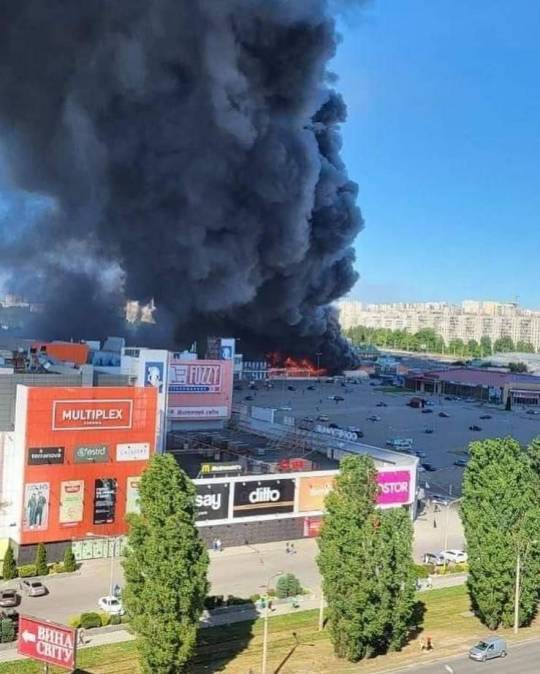
#ukraine#украина#україна#russia#россия#росія#putin#путин#путін#война#war#kharkiv#війна#харків#харьков#nobel#nobel prize#human rights
160 notes
·
View notes
Text
Hamas didn’t invade Israel on Oct. 7 for its amusement. The barbaric sneak attack is a part of the pogrom intended to wipe out the Jewish state. It was a crime against humanity, and not just because of its savagery. We would all be worse off if Israel ceased to exist. The same cannot be said for Islamic terrorists.
Israel’s contributions to the modern world are momentous. When not dodging bullets, rockets, and homicide bombers, Israelis have since 1948 developed:
Copaxone and Rebif, drugs that treat multiple sclerosis, and Exelon, which treats mild to moderate dementia in Alzheimer’s and Parkinson’s patients.
The PillCam, “a minimally invasive ingestible camera in a capsule that allows visualization of the small bowel.”
The water desalination process.
The Sniffphone, “that can actually ‘sniff out’ diseases.”
And SpineAssist, “the first-ever spine robot” that has the “ability to provide real-time intraoperative navigation.”
The Weizmann Institute of Science in Rehovot, Israel, responsible for some of the inventions listed above, has also produced diabetes and flu vaccines, is using T-cells to treat damaged spines, and is a pioneer in industrial — and medical — uses nano materials.
Other impactful Israeli products include drip irrigation, a revolutionary microprocessor called the 8088, the NIR heart stent, voice-over-internet protocol, the USB flash drive, the Waze navigation app, ReWalk, “a commercial bionic walking assistance system,” and “the first commercially viable firewall software.”
Our own security has benefited from Israel’s labor and work ethic.
“Many Israeli innovations are present in upgrades to U.S. Air Force fighters and Army equipment,” says the international law firm Smith, Gambrell & Russell. One important advance in particular is the helmet-mounted display system for the new F-35 Joint Strike Fighter.
So we have a country of 9.23 million, mostly desert, that is only 75 years old, is “surrounded by enemies” and in a constant state of war, which has “no natural resources,” yet “produces more start-up companies on a per capita basis than large, peaceful, and stable nations and regions like Japan, China, India, Korea, Canada, and all of Europe.” It is the only nation outside of the U.S. that Warren Buffet invests in.
Have the Palestinians or Hamas, currently at war with Israel, done anything that compares to what the Israelis have achieved? More broadly, beyond the Allahista terrorist groups, what has Islam contributed to the modern world?
Not much.
Since 1901, Jews, who total 0.2% of the world’s population, have won 189 Nobel prizes for physics, medicine, chemistry and economics. Over that same period, Muslims, who make up nearly a quarter of the global population, have won four.
If it seems as Islamic groups, Hamas and Hezbollah prominent among them, are more interested in spreading nihilism, committing atrocities, and destroying civilization than making the world a better place, well, then there’s a good reason for it. That is exactly what the heroes of an increasingly large number foolish Westerners are aiming for.
Meanwhile, Israelis see themselves “as having a role in the world to repair the world,” says Chemi Peres, managing partner and co-founder of the venture capital firm Pitango, chairman of the Peres Center for Peace and Innovation, and son of the late Israeli Prime Minister Shimon Peres.
“We call it tikkun olam, and here at the Peres Center we have a mission statement, which is to introduce innovation and new ideas and new technologies, not only for ourselves but to solve the problems of the world.”
Islam is part of that world, but too many of its adherents live to do just the opposite.
— Written by the I&I Editorial Board
38 notes
·
View notes
Text
Orthodox women activists are pledging to withhold sex from their husbands as they escalate a public campaign to help one of their own obtain a religious divorce from her husband after four years of trying.
Supporters of Malky Berkowitz, 29, are launching what they are calling a “mikvah strike” — a form of protest that leverages Jewish sexual purity rituals as a pressure tactic. It begins on Friday night and could be extended.
According to traditional Jewish law, following menstruation, married women must immerse in a mikvah, or ritual bath, before they can have sex with their husbands — which many do later that night. In fact, some authorities say that Jewish law, or halacha, attaches special significance to the intimacy that follows immersion, requiring that it take place without delay.
For Adina Sash, an advocate for Jewish women whose estranged husbands are refusing to divorce them ritually, that makes post-mikvah sex a natural site of protest.
For the last seven weeks, Sash — an Orthodox feminist activist in Brooklyn known by her Instagram handle, Flatbush Girl — has led a team of activists, lawyers, and community leaders pursuing a “get,” or Jewish divorce document, for Berkowitz. Berkowitz’s husband, Volvy, is refusing to issue the get that would complete their divorce, making her what is known as an “agunah,” or “chained woman” who cannot remarry under Jewish law.
Sash believes that Orthodox women need to negotiate and formalize Jewish legal terms around divorce before getting married — and that those who don’t run the risk of one day having a divorce withheld, widely understood to be a form of abuse.
“You need to stand with us on this mikvah strike and withhold sex on mikvah nights or on mitzvah night on every Friday night until Malky is free as a way of showing your compassion for Malky,” she said, addressing her fellow Orthodox women. (Jewish tradition encourages married couples to have sex on Shabbat, and some in the Orthodox world refer to that time as “mitzvah night” for that reason.)
She said the objective is to get men in the community to take action on Berkowitz’s behalf.
“When your husband says, ‘Why?’ say, ‘I could be the next agunah until Malky is free. I could be the next agunah. Please call your rabbi and figure out a way to help free Malky,’” she said.
The protest echoes the sex strike in Aristophanes’ “Lysistrata,” the Greek comedy where the women of Athens refrained from sleeping with their husbands in order to end the Peloponnesian War. Sex strikes have been used successfully to effect change in contemporary communities, for example ending Liberia’s civil war in 2003 when the country’s women participated. Leymah Gdowbee, the organizer of the Liberian sex strike, later won a Nobel Peace Prize for her efforts.
Orthodox women have reportedly embarked on similar protests at a small scale in the past, such as in Canada several decades ago. But protest on behalf of agunot has more recently centered on public demonstrations, rabbinic suasion and, increasingly, social media campaigns like those run by Sash. Sash’s contributions have been successful — earlier this week, she was in the room as Esther Eisenmann-Lauber, an agunah separated from her husband for six years, finally received her get.
Asked whether Malky Berkowitz has any thoughts on the strike, Sash said only, “Malky has no comment.”
ORA, the Organization for the Resolution of Agunot, was established in 2002 precisely to facilitate Jewish divorces, and the organization also provides halachic prenuptial agreements that place a penalty on get refusal and abide by Jewish law. A representative for ORA did not return JTA’s requests for comment on the sex strike.
After Sash formally announced the call for the strike on social media Thursday afternoon, many of her followers reacted approvingly.
“Malky is worth this,” one of her followers commented on the call for a strike. “Every agunah before her is worth this. Every prevented agunah is worth this.”
In response to a negative comment, another woman wrote, “It’s not punishing women. ” She added, “A properly executed sex strike would def get some of the men in power to think twice.”
But critics of the strike — including those who agree that the problem of get refusal needs to be addressed — say it could interfere with “shalom bayit,” or peace in the home, an oft-cited Jewish value, and could disrupt otherwise healthy relationships.
“The way to address broken relationships is *not* by creating more broken relationships,” Rabbi David Bashevkin, creator of popular Orthodox podcast 18Forty shared on X on Monday. “Using intimacy as a point of leverage for social protest is unwise and downright dangerous. More healthy families. More healthy relationships.”
He added, “This is a communal issue that needs communal coordination and buy-in.”
Even some Orthodox feminists who have lobbied on behalf of agunot say they are troubled by the strike. Daphne Lazar Price, executive director of the Jewish Orthodox Feminist Alliance, told JTA she often speaks out against the “weaponization of halacha” and sees the mikvah strike to be another example of it.
“Religion-based coercive control is morally wrong and should never be tolerated,” she wrote in an email to JTA. “It shouldn’t take the threat of women to withhold sex from their husbands in order to get men’s attention – nor to get men to behave as allies toward women, and toward the halachic system that they purport to hold so dear. Using sex as a form of coercion is also highly problematic.”
She suggested, though, that the strike could create an opportunity for Jewish legal authorities to remember the other tactics they have at their disposal to pressure men who refuse to divorce their wives — in particular, “banning entry of recalcitrant husbands into every Jewish religious and communal institution and business, as well as private homes, until he issues a get.”
Sash attributes negative reaction to the strike as part of a “misogynistic” double standard for withholding a get versus withholding sex.
“If they’re going to withhold the get, then we’re going to withhold sex,” Sash said.
“They say, ‘How could you withhold sex? You’re weaponizing your body! How can you withhold sex? You’re weaponizing intimacy,’” she added. “Then how could you withhold the get? You’re weaponizing the divorce process. You are holding a woman in limbo.”
Malky and Volvy Berkowitz married in 2016. At their wedding, Malky wore a dek tichel, or opaque bridal veil, which she described in a text shared with JTA as a “blindfold.”
“Besides Volvy giving me a kdishen [sic] ring and getting me pregnant twice we never connected,” she wrote. “Good bye Volvy I never knew you and I’ll never know you.”
14 notes
·
View notes
Text
Nobel Lecture given by Nobel Peace Prize Laureate 2022 Center for Civil Liberties / Центр Громадянських Свобод, delivered by Oleksandra Matviichuk , Oslo, 10 December 2022.
Time to take responsibility
Your Majesty, Your Royal Highnesses, dear members of the Norwegian Nobel Committee, citizens of Ukraine and citizens of the world.
This year, the entire Ukrainian nation was waiting for the announcement of the Nobel Peace Prize laureates. We see this Prize as a recognition of the efforts of the Ukrainian people, who have bravely stood up to the attempts to destroy peaceful development of Europe, as well as a celebration of the work being done by human rights activists in order to prevent military threat for the entire world. We are proud of having Ukrainian language heard during the official ceremony for the first time in history.
We are receiving the Nobel Peace Prize during the war started by Russia. This war has been going on for eight years, 9 months and 21 days. For millions of people, such words as shelling, torture, deportation, filtration camps have become commonplace. But there are no words which can express the pain of a mother who lost her newborn son in a shelling of the maternity ward. A moment ago, she was caressing her baby, calling him by his name, breastfeeding him, inhaling his smell – and the next moment a Russian missile destroyed her entire universe. And now her beloved and longed-for baby lies in the smallest coffin in the world.
There are no available solutions for the challenges we and the whole world are facing now. People from different countries are also fighting for their rights and freedoms in extremely difficult circumstances. So, today I will at least try to ask the right questions so that we could start looking for these solutions.
First. How can we make human rights meaningful again?
Survivors of the World War II are no longer around. And the new generations began to take rights and freedoms for granted. Even in developed democracies, forces questioning the principles of the Universal Declaration of Human Rights are on the rise. But human rights cannot be upheld once and for all. The values of modern civilization must be protected.
Peace, progress and human rights are inextricably linked. A state that kills journalists, imprisons activists, or disperses peaceful demonstrations poses a threat not only to its citizens. Such a state poses a threat to the entire region and peace in the world as a whole. Therefore, the world must adequately respond to systemic violations. In political decision-making, human rights must be as important as economic benefits or security. This approach should be applied in foreign policy too.
Russia, that has been consistently destroying its own civil society, illustrates this very well. But the countries of the democratic world have long turned a blind eye to this. They continued to shake hands with the Russian leadership, build gas pipelines and conduct business as usual. For decades, Russian troops have been committing crimes in different countries. But they always got away with this. The world has not even adequately responded to the act of aggression and annexation of Crimea, which were the first such cases in post-war Europe. Russia believed that they could do whatever they want.
Now Russia is deliberately inflicting harm on civilians aiming to stop our resistance and occupy Ukraine. Russian troops intentionally destroy residential buildings, churches, schools, hospitals, shell evacuation corridors, put people in filtration camps, carry out forced deportations, kidnap, torture and kill people in the occupied territories.
The Russian people will be responsible for this disgraceful page of their history and their desire to forcefully restore the former empire
Second. How to start calling a spade a spade?
People of Ukraine want peace more than anyone else in the world. But peace cannot be reached by country under attack laying down its arms. This would not be peace, but occupation. After the liberation of Bucha, we found a lot of civilians murdered in the streets and courtyards of their homes. These people were unarmed.
We must stop pretending deferred military threats are “political compromises”. The democratic world has grown accustomed to making concessions to dictatorships. And that is why the willingness of the Ukrainian people to resist Russian imperialism is so important. We will not leave people in the occupied territories to be killed and tortured. People’s lives cannot be a “political compromise”. Fighting for peace does not not mean yielding to pressure of the aggressor, it means protecting people from its cruelty.
In this war, we are fighting for freedom in every meaning of the word. And for it, we are paying the highest possible price. We, Ukrainian citizens of all nationalities, should not discuss our right to a sovereign and independent Ukrainian state and development of the Ukrainian language and culture. As human beings, we do not need an approval of our right to determine our own identity and make our own democratic choices. Crimean Tatars and other indigenous peoples should not prove their right to live freely in their native land in Crimea.
Our today’s fight is paramount: it shapes the future of Ukraine. We want our post-war country to let us build not some shaky structures, but stable democratic institutions. Our values matter most not when it’s easy to embody them, but when it’s really hard. We must not become a mirror of the aggressor state.
This is not a war between two states, it is a war of two systems – authoritarianism and democracy. We are fighting for the opportunity to build a state in which everyone’s rights are protected, authorities are accountable, courts are independent, and the police do not beat peaceful student demonstrations in the central square of the capital.
On the way to the European family, we have to overcome the trauma of war and its associated risks, and affirm the choice of the Ukrainian people determined by the Revolution of Dignity.
Third. How to ensure peace for people around the world?
The international system of peace and security does not work anymore. Crimean Tatar Server Mustafayev as well as many others are put in Russian prisons because of their human rights work. For a long time, we used law to protect human rights, but now we do not have any legal mechanisms to stop Russian atrocities. So many of the human rights activists were compelled to defend what they believe in with arms in their hands. For example, my friend Maksym Butkevych, who is now in Russian captivity. He and other Ukrainian prisoners of war, as well as all detained civilians, must be released.
The UN system, created after the World War II by its winners, provides for some unjustified indulgences for individual countries. If we don’t want to live in the world where rules are set by states with stronger military capabilities, this has to be changed.
We have to start reforming the international system to protect people from wars and authoritarian regimes. We need effective guarantees of security and respect for human rights for citizens of all states regardless of their participation in military alliances, military capability or economic power. This new system should have human rights at its core.
And the responsibility for this lies not only with politicians. Politicians are tempted to avoid looking for complex strategies, which require a lot of time. They often act as if global challenges would disappear by themselves. But the truth is that they only get worse. We, people who want to live in peace, should tell politicians that we need a new architecture of the world order.
We may not have political tools, but we still have our words and our position. Ordinary people have much more influence than they think they do. Voices of millions of people from different countries can change world history faster than interventions of the UN.
Fourth. How to ensure justice for those affected by the war?
Dictators are afraid that the idea of freedom will prevail. This is why Russia is trying to convince the whole world that the rule of law, human rights and democracy are fake values. Because they do not protect anyone in this war.
Yes, the law doesn’t work right now. But we do not think it is forever. We have to break this impunity cycle and change the approach to justice for war crimes. A lasting peace that gives freedom from fear and hope for a better future is impossible without justice.
We still see the world through the lens of the Nuremberg Tribunal, where war criminals were convicted only after the fall of the Nazi regime. But justice should not depend on resilience of authoritarian regimes. We live in a new century after all. Justice cannot wait.
We need to bridge the responsibility gap and make justice possible for all the affected people. When the national system is overloaded with the war crimes. When the International Criminal Court can try just a few selected cases or has no jurisdiction at all.
War turns people into numbers. We have to reclaim the names of all victims of war crimes. Regardless of who they are, their social status, type of crime they have suffered, and whether the media and society are interested in their cases. Because anyone’s life is priceless.
Law is a living continuously evolving matter. We have to establish an international tribunal and bring Putin, Lukashenko and other war criminals to justice. Yes, this is a bold step. But we have to prove that the rule of law does work, and justice does exist, even if they are delayed.
Fifth. How can global solidarity become our passion?
Our world has become very complex and interconnected. Right now, people in Iran are fighting for their freedom. People in China are resisting the digital dictatorship. People in Somalia are bringing child soldiers back to peaceful life. They know better than anyone what it means to be human and stand up for human dignity. Our future depends on their success. We are responsible for everything that happens in the world.
Human rights require a certain mindset, a specific perception of the world that determines our thinking and behavior. Human rights become less relevant if their protection is left only to lawyers and diplomats. So, it is not enough to pass the right laws or create formal institutions. Societal values will always prevail.
This means that we need a new humanist movement that would work with meanings, educate people, build grass-root support and engage people in the protection of rights and freedoms. This movement should unite intellectuals and activists from different countries, because the ideas of freedom and human rights are universal and have no state borders.
This will enable us to create a demand for solutions and jointly overcome global challenges – wars, inequality, attacks on privacy, rising authoritarianism, climate change, etc. This way we can make this world a safer place.
We do not want our children to go through wars and suffering. So, as parents we have to assume the responsibility and act, not to shift it on our children. Humanity has a chance to overcome global crises and build a new philosophy of life.
It’s time to assume the responsibility. We don’t know how much of the time we still have.
And since this Nobel Peace Prize Ceremony takes place during the war, I will allow myself to reach out to people around the world and call for solidarity. You don’t have to be Ukrainians to support Ukraine. It is enough just to be humans.
Copyright © The Nobel Foundation 2022
#russian ukrainian war#war in ukraine#russian war crimes#stoprussia#save ukraine#stopputin#stop russia#stopwar#russian aggression in ukraine#ukraine#nobel prize
127 notes
·
View notes
Text
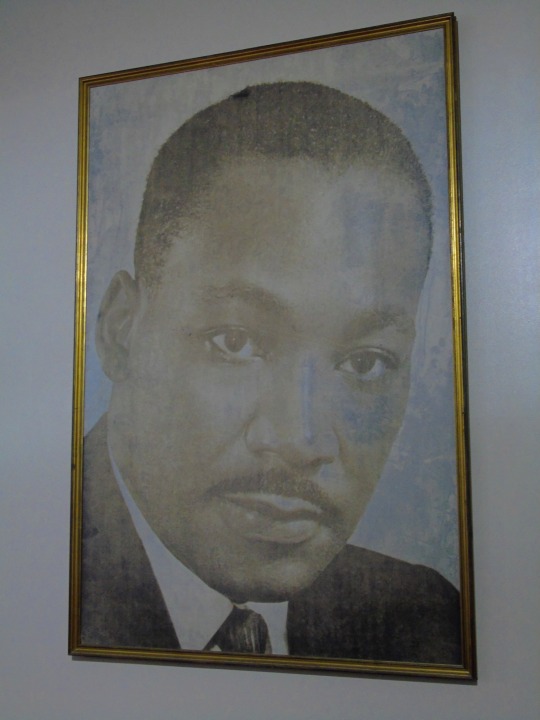

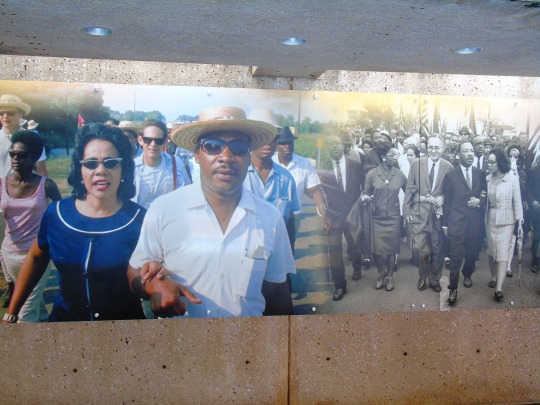





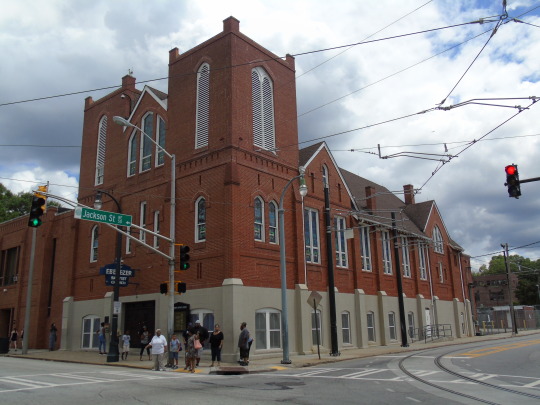
Martin Luther King Jr. received the Nobel Peace Prize for combating racial inequality through nonviolence on October 14, 1964.
#Martin Luther King Jr#Martin Luther King Jr. National Historical Park#Atlanta#Martin Luther King Jr. Center for Nonviolent Social Change#14 October 1964#anniversary#Nobel Peace Prize#civil rights movement#US history#USA#Georgia#original photography#summer 2016#Historic Ebenezer Baptist Church#Freedom Road#architecture#cityscape#tourist attraction#landmark
2 notes
·
View notes
Note
Cig! Your tags on the Tarlos dancing reblog made me remember how feral I get about the end of that wedding dance, which always seems to get cut off in gifs — it’s the second after that shift, when Carlos starts to tuck his face into TK’s throat. It just slides the whole moment from contentment into something like gratitude, and it’s one of my favorite things Rafa did across the whole wedding.
Exhibit A:

Yes! It is perfect. PERFECT. Such a beautiful touch. Rafa needs an Emmy, a Grammy, an Oscar, a Nobel Peace Prize, a Pulitzer, a Fields Medal, the moon and the stars. Gratitude and relief. He's realised his whole life was leading up to this moment - and what it makes him is calm. He's exhausted and grieving, but he's also happy and calm - and grateful. TK has brought him excitement and adventure and all of that, but he's also brought him peace, and it's so powerful to see! (In the nearish future I'm going to be centering a fic around this moment btw, because I love it so much!)
14 notes
·
View notes
Text
A leading human rights activist in Iran has written from prison to give the BBC details of how women detained in recent anti-government protests are being sexually and physically abused.
Narges Mohammadi said such assaults had become more common in recent protests.
She is serving a lengthy sentence in Tehran's notorious Evin prison.
The protests were triggered by the death in custody in September of 22-year-old Mahsa Amini, arrested for violating strict dress codes.
She was detained by morality police in mid-September for allegedly wearing her hijab, or headscarf, "improperly".
More than 500 protesters, including 69 children, have been killed, while thousands of others have been arrested, human rights activists say. Dozens of Iranian security personnel are also reported to have been killed.
Many of those arrested have allegedly been subjected to torture and other ill-treatment in custody.
Ms Mohammadi is deputy head of Nobel laureate Shirin Ebadi's Defenders of Human Rights Center. She has received several jail sentences since 2011 and is currently in prison for "spreading propaganda".
This year she was also included in the BBC's 100 Women - a high profile list of 100 inspiring and influential women from around the world.
Prominent political prisoners in Iran like Ms Mohammadi, who are not in solitary confinement, are often able to communicate with the outside world via their families or fellow activists.
'Hands and legs tied to hook'
Ms Mohammadi says in her letter that some of the women arrested during the recent demonstrations were transferred to the women's ward in Evin prison.
That gave her a chance to hear shocking details of the abuse they suffered.
She says that one well-known activist had her hands and legs tied to a hook above her head in the vehicle taking her to prison - and was then sexually assaulted by security officers.
Ms Mohammadi says she saw bruises and scars on her body.
She says another woman who was arrested in the street was taken on a motorbike by two security officers - one in front and one behind - and was repeatedly assaulted.
Iran's state broadcaster has denied reports of security forces using rape and sexual abuse against female protesters.
A report on 19 December said female prisoners were kept in facilities run by all-female staff, adding that claims of rape in the Western media were "rumours" and "baseless".
But Iran also continues to heavily repress domestic reporting of the protests, with one recent report suggesting it was now the third largest jailer of journalists in the world.
Ms Mohammadi says that even though reporting abuse may lead to intimidation of the families of women in detention, she believes it's necessary to expose what's happening - in order to try to put a stop to it.
"Not revealing these crimes would contribute to the continuation of application of this repressive methods against women," she says.
"Therefore, it seems that the assault on women activists, fighters, and protesters in Iran should be widely and powerfully reported at the global level."
She added that this was especially important given the pressure on civil society in Iran.
"In the absence of powerful independent civil organisations, the attention and support of the media and international human rights organisations and global public opinion is essential," she said.
Ms Mohammadi ended the letter by expressing the belief that Iran's "brave, resilient, lively and hopeful women" would attain victory.
"Victory means establishing democracy, peace and human rights and ending tyranny," she added.
"We will not back down."
112 notes
·
View notes
Text
Lech Wałęsa is the founder of the Solidarność trade union which contributed to the collapse of communism in Poland in the 1980s. He served one term as president of Poland and won the Nobel Peace Prize.
Like most people in Poland, Wałęsa has no illusions about the intentions of Vladimir Putin. In a recent visit to Washington, he called for strong and united leadership in the West regarding Russia – especially in the ongoing information war.
“The whole world has joined together against Russia. It has never been like this. It’s our great opportunity to finally put some order into this world,” Walesa said in an address on February 8 at the Center for Strategic and International Studies (CSIS), a Washington think tank. Walesa said fate has given the United States the role of leader in meeting these challenges and it cannot retreat now. “Our grandchildren will never forgive us” if it does, he said. The co-founder of Poland's Solidarity movement, who served from 1990 to 1995 as Poland’s first postcommunist president, said he fought his struggle against the Soviet Union and the Warsaw Pact more than 40 years ago mainly with information and he encouraged the United States to do a better job “fighting with propaganda” against the current regime of Russian President Vladimir Puin. This includes tactics such as publishing data about the number of Russian soldiers killed and maimed in the war and the stories behind those losses. Ordinary Russians must be reminded that their neighbors or their neighbors’ sons may no longer be alive because they were sent to “die for Putin.” Westerns should help Russians “internalize what needs to be done.” In the decades since he left politics Walesa has been a champion of democracy and the rule of law, encouraging Eastern Europe’s formerly communist countries to pursue progress through democratic means. Walesa was celebrated in Washington in 1989 as the man who did more than any other single individual to bring down communism in Eastern Europe and addressed a joint session of Congress.
His trip to the US comes at a time aid to Ukraine is stalled in Congress as a result of Donald Trump's open advocacy of the Putin dictatorship.
Poland's current Prime Minister Donald Tusk has been far more direct about pointing the finger of blame.
Reagan ‘must be turning in his grave’: Poland’s Tusk slams Republicans over Ukraine aid
Ultimately it's up to American voters to get Republicans to quit acting like mindless stooges for the Evil Empire.
Progress has been made in the Senate on aid to Ukraine. But the House, led by religious fanatic Speaker "MAGA Mike" Johnson remains a problem.
Here is a list of Republican House members from districts won by President Joe Biden in 2020. These GOP representatives are particularly vulnerable. Presumably the 2020 presidential figures have been adjusted to 2022 district boundaries.

If you live in one of those districts, you have a disproportionate amount of influence on aid to Ukraine. Contact your representative and politely demand that the House quits starving Ukraine of needed assistance. Remind these Republicans that Ronald Reagan would be disgusted by the GOP acting as lap dogs for Putin's Evil Empire. Interestingly, 11 of those 18 districts are in either New York or California.
And yes, that table was made before the ouster of George Santos – otherwise it's up to date.
Not sure who represents you? Use your ZIP+4 to find out here...
Find Your Representative
#invasion of ukraine#assistance to ukraine#stand with ukraine#lech wałęsa#donald tusk#poland#polska#russia#vladimir putin#russia's war of aggression#the evil empire#ronald reagan#us house of representatives#find your representative#election 2024#house republicans from biden districts#агрессивная война россии#владимир путин#путин хуйло#путин - военный преступник#путлер#геноцид#руки прочь от украины!#геть з україни#вторгнення оркостану в україну#деокупація#будь сміливим як україна#слава україні!#героям слава!
11 notes
·
View notes
Text

ALEX AVGUD - Shorts matinais
ALEX AVGUD
Alex Avgud é um fotógrafo russo que mora na Holanda. Os seus trabalhos visuais exploram questões como a migração, a sexualidade e a relatividade da liberdade através da fusão da fotografia com performances coreografadas. Alex se formou na Royal Academy of Art (KABK) em Haia com bacharelado em fotografia, ganhando o prêmio Ron Mandos Photo Talent na exposição 'Best of Graduates 2019' na Galerie Ron Mandos. Alex expôs no festival Les Rencontres d'Arles na França com o FOAM Photography Museum, na UNSEEN Photo Fair (Amsterdã, Holanda), no EYE Film Museum (Amsterdã), no 37th Hyéres Festival of Fashion and Photography (França), com a Atla Platform em Copenhague (Dinamarca) e no Nobel Peace Center em Oslo (Noruega). Alex é laureado com o Dior Photography Award 2020 e foi selecionado para o Kassel Dummy Book Award.
3 notes
·
View notes